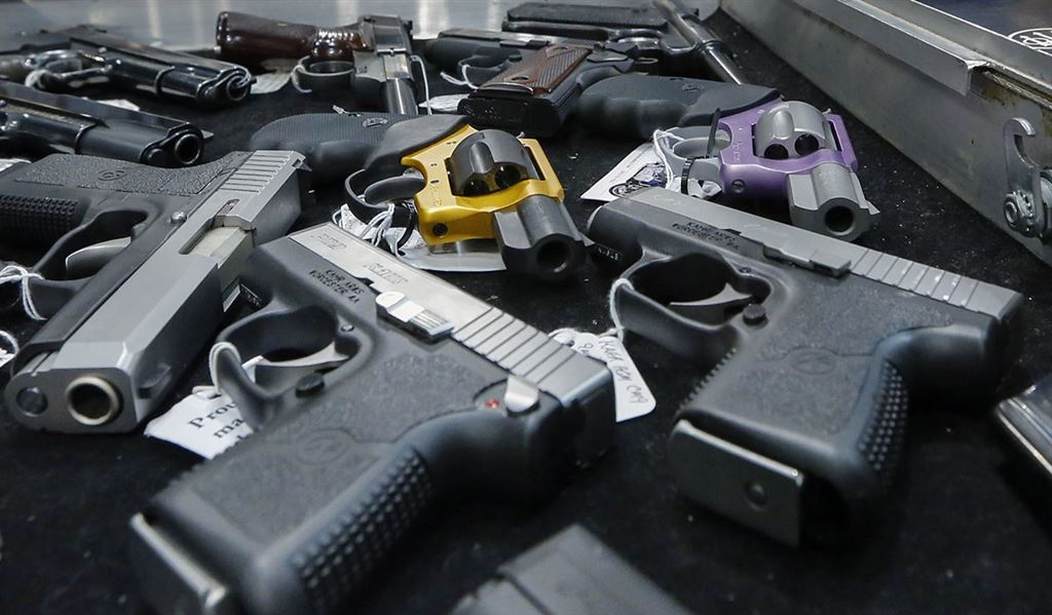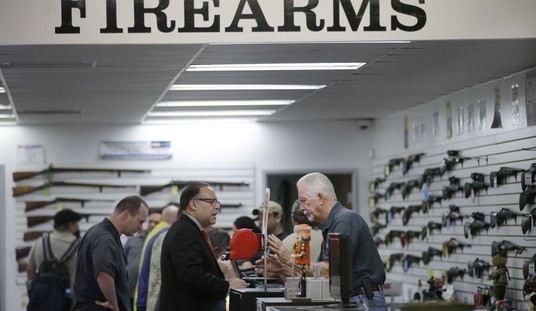The right to bear arms doesn’t exist in New Jersey law. Instead, the carrying of firearms banned completely, unless you’re one of the lucky few who possess a valid concealed carry permit. Not only does the state make it nearly impossible to obtain one of those permits, New Jersey doesn’t recognize any other state’s concealed carry license. That means that even if you can lawfully carry a firearm at home, your rights end at the state line.
Which brings us to the case of Marion Pearson, a Georgia man who was arrested and charged with unlawful possession of a firearm and hollow-point ammunition several years ago. Pearson possessed a valid carry license from Georgia at the time of his arrest, but despite that fact and the fact that Pearson wasn’t charged with a crime of violence, prosecutors refused to allow Pearson to enter pre-trial diversion and avoid charges. Instead, he was convicted by a jury and sentenced to five years in state prison.
In his appeal, Pearson not only brought up the fact that a 2014 directive from the state’s Attorney General indicates that his case should have been eligible for pre-trial diversion, but argued that he wasn’t allowed to present evidence of his Georgia carry license, which he believes would have been a mitigating factor for the jury. On Tuesday, the state’s appellate court denied Pearson’s motion, opining that if the jury had been aware of Pearson’s carry license, it might have led them to nullify the charges against him.
We agree with the judge that the evidence was irrelevant to the statutory elements the State had to prove beyond a reasonable doubt. Additionally, it would have been an invitation for the jury to engage in jury nullification. Our courts have long decried jury nullification—the power to arbitrarily convict one while acquitting another—as “the power to act against the law, against the Legislature and the Governor who made the law” and “absolutely inconsistent with the most important value of Western democracy, that we should live under a government of laws and not of men.” State v. Ragland, 105 N.J. 189, 208-09 (1986). This evidence’s potential to confuse issues or mislead jurors greatly exceeded any probative value.
I disagree with both arguments used by the court here. The state of New Jersey has a specific policy regarding out-of-state gun owners found to be in possession of a firearm, which shows that the state itself views legal gun ownership as a mitigating factor in terms of prosecution. Why shouldn’t the jury be made aware of the fact that Pearson could legally own and carry his pistol in the state of Georgia? Because prosecutors and judges are afraid that if the jurors became aware of that information, they wouldn’t convict someone like Pearson of a felony offense.
Jury nullification isn’t illegal, even if New Jersey’s courts have “long decried” it. If both sides had presented all of their evidence and the jury concluded that justice would not have been served by sending Marion Pearson to prison for five years, it would have been a black eye for prosecutors, so the courts decided they’d step in to ensure that didn’t happen.
Instead, they sent a guy to prison for the “crime” of exercising his right to bear arms beyond his state’s borders. New Jersey’s not any safer as a result, but prosecutors got a win, and apparently that’s the most important thing.
This is yet another example of why we need a strong decision from the Supreme Court when it comes to New York carry case it will hear next month. Our right to keep and bear arms shouldn’t end at the state line, but that’s unfortunately the reality at the moment. I don’t lose my First Amendment rights or my Fourth Amendment protections if I drive from Virginia to New Jersey, but my Second Amendment rights disappear as soon as I leave the Old Dominion, just as Marion Pearson’s right to bear arms vanished once he set foot in the Garden State.
The simple fact is that prosecutors and judges didn’t want Pearson’s jury to know that he could legally possess and carry his pistol in his home state of Georgia because they were afraid that knowledge would tank their case, which suggests that even the average non-gun owning resident of New Jersey would see this prosecution as an injustice if they knew all of the facts.









Join the conversation as a VIP Member